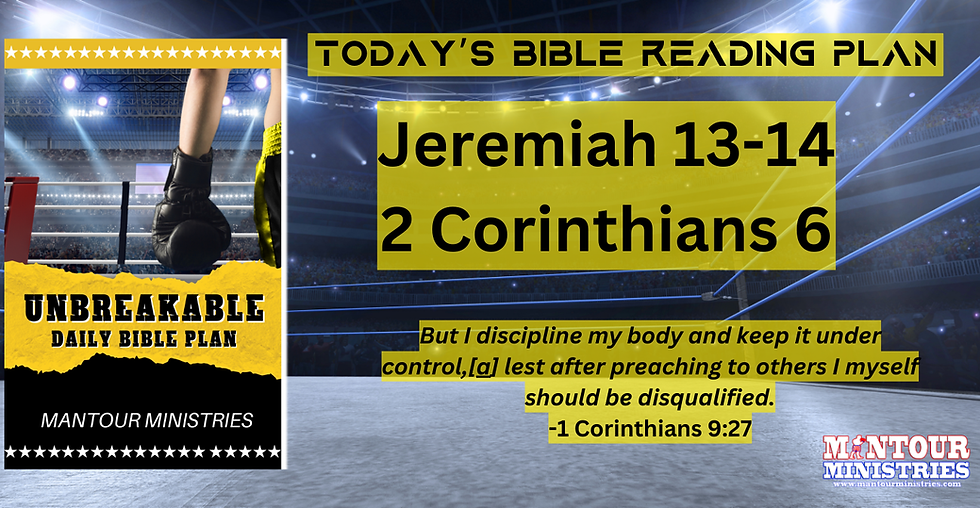November 20, 2022 Bible Reading
- Jamie Holden
- Nov 20, 2022
- 3 min read
November 20, 2022
Peter and Jesus: Readiness to Die
By: Rev. Scott A. Gray, Associate Pastor, Lighthouse Church
It’s a serious action when you make a vow to God. It’s a solemn promise, not a nonchalant attitude. Have you ever promised someone that you would do a specific thing, but you ended up breaking your promise? Failure certainly brings a feeling of tremendous disappointment or despair.
People have often said, “Don’t make a promise that you can’t keep.” At first glance, this saying appears to mean you shouldn’t make promises altogether. However, it means rather you should be circumspect in making promises; that is, you should think carefully before saying anything. The Bible says, “When you make a vow to God, do not delay to fulfill it. He has no pleasure in fools; fulfill your vow” (Ecclesiastes 5:4, NIV).
There was a man in the Bible that made a bold, blatant promise to Jesus. His name was Peter. His promise was the very essence of what a ride or die mentality looks like.
But Peter declared, “Even if I have to die with you, I will never disown you.” And all the other disciples said the same.” (Matthew 26:35, NIV).
Not only was Peter willing to die for Jesus, but all the disciples said they were willing to die, too. If Peter promised, the other disciples couldn’t promise anything less. Once the heart is fully committed, the action will soon follow. Many people have laid down their lives for what they believe in, either religiously or sacrificially, for someone else to live. Peter was willing to lay down his life for his Master because of what he saw, touched, and heard. To Peter, Jesus was “the Christ, the Messiah, the Son of the living God.” (Matthew 16:16, MSG)
His promise wasn’t to die for a belief, concept, opinion, or philosophy, but rather to die for a person whom he loved immensely. Jesus himself said, “Greater love has no one than this: to lay down one’s life for one’s friends.” (John 15:13, NIV)
Love is a powerful action on behalf of another and is expressed in a myriad of ways. It compels people to take extraordinary measures. So, the basis of a ride or die mentality is the love of God flowing through us.
What is the love of God? God takes us to the cross of Christ and declares, “this is love.” It’s about unswerving sacrifice, surrender, obedience, and loyalty.
We don’t know whether Peter answered hastily or gave it some thought, but his statement demonstrated his readiness to die with Jesus. Notice that Peter didn’t say, “Even if I have to die for you…” He said with Jesus (Matthew 26:35; Mark 14:31; Luke 22:33). In Luke’s gospel, Peter said to Jesus that he would be “ready to go with you both to prison and to death.”
But in John 13:37, Peter said he would die for Jesus. “Peter said to him, ‘Lord, why can’t I not follow you now? I will lay down my life for you’”. (NIV)
A few hours later, we find the disciples not sacrificing their lives for Jesus but running to save their lives! Peter vowed to be faithful. They say that “talk is cheap.” It’s easy for anyone to proclaim their devotion to Christ by their words, but when your life is under pressure, or you are in a peculiar situation, the test is given by God to see if our words are true and meaningful. God wants you to find out how strong your faith really is.
According to church tradition, Peter died as a martyr for Jesus in Rome under Emperor Nero. He was crucified upside down because he felt unworthy to die in the same manner as Jesus. Peter really was Jesus’ ride or die friend because Peter had learned the truth of Jesus’ words in Matthew 10:39, “Whoever finds their life will lose it, and whoever loses their life for my sake will find it” (NIV).
Today’s Scripture: Greater love has no one than this: to lay down one’s life for one’s friends. (John 15:13, NIV)
Holy Bible, New International Version®, NIV® Copyright ©1973, 1978, 1984, 2011 by Biblica, Inc.® Used by permission. All rights reserved worldwide.




Comments